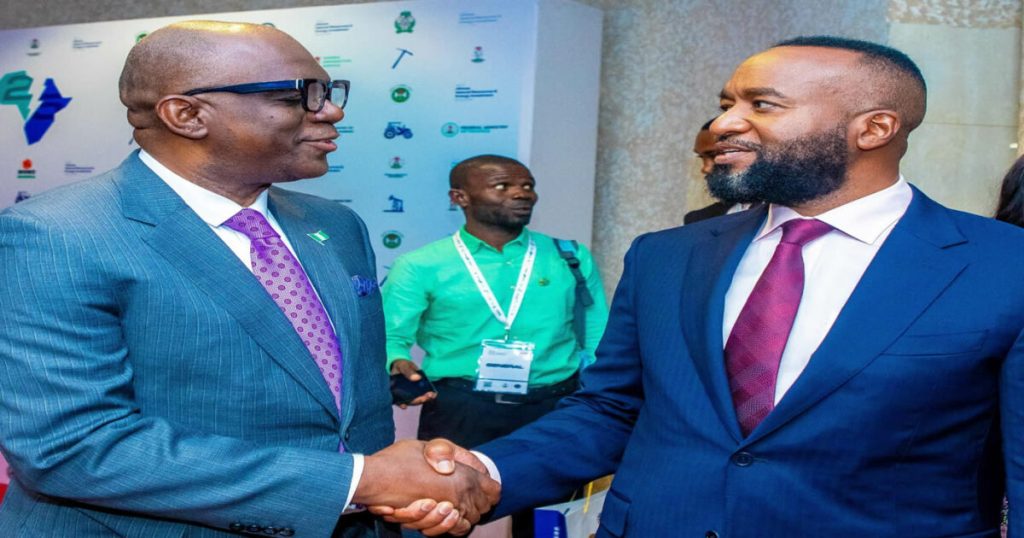Paragraph 1: The Urgent Call for Domestic Capital Mobilization in Africa
The Regional Maritime Development Bank (RMDB) has emphasized the urgent need for African nations to prioritize the mobilization of domestic capital to fuel the development of critical sectors. This call to action was made by Mr. Adeniran Aderogba, the President and CEO of RMDB, during the African Natural Resources and Energy Investment Summit (AFNIS 2025) held in Abuja. Aderogba stressed the importance of shifting away from reliance on foreign capital and instead focusing on leveraging domestic financial resources to fund infrastructure development, energy projects, maritime logistics, and other key drivers of industrialization. This shift, he argued, is crucial for achieving sustainable development and economic resilience.
Paragraph 2: AFNIS 2025: A Platform for Sustainable Resource Governance
The AFNIS 2025 summit served as a crucial platform for stakeholders, including government officials, industry leaders, investors, and development partners, to engage in discussions on leveraging local content development as a cornerstone of economic growth. The summit’s theme, “Harnessing local content for sustainable development,” highlighted the importance of African-led investment and policy solutions in achieving long-term prosperity. Discussions centered around examining Africa’s resource governance trajectory, identifying missed opportunities, and collaboratively developing actionable strategies for the sustainable utilization of the continent’s vast natural resources. The summit reinforced the notion that sustainable resource governance is inextricably linked to economic resilience and future prosperity.
Paragraph 3: The RMDB’s Role in Advancing Sustainable Development
Aderogba underscored the strategic role of financial institutions like the RMDB in driving sustainable development across Africa. The RMDB, established to address the long-standing gap in maritime and trade-related infrastructure financing, is now expanding its mandate to encompass broader development finance initiatives. Aderogba emphasized the need for financial institutions to evolve and meet the scale and complexity of Africa’s development needs. He argued that local content development cannot thrive in isolation from financial sustainability and that African capital markets and institutions must be strengthened to play a more prominent role in financing the continent’s development agenda.
Paragraph 4: The Importance of Coordination and Risk Management
Aderogba stressed the necessity for improved coordination among governments, financial institutions, and private investors to ensure policy alignment and reduce duplication of efforts. He called for prospective lenders to develop a deep understanding of the nuances of the sectors requiring funding, particularly infrastructure and energy, and to proactively identify and mitigate project risks. He emphasized that the historical challenge has not been a lack of awareness of infrastructure and energy gaps, but rather inconsistencies in implementation and a lack of alignment between national priorities and regional strategies. Effective risk management frameworks, he argued, are essential for long-term capital provision at affordable rates.
Paragraph 5: Learning from Past Missteps in Resource Governance
Aderogba acknowledged the importance of reviewing past policy approaches to natural resource governance and learning from past missteps. He highlighted the need to analyze previous experiences, including uncoordinated investment strategies and weak enforcement of local content policies, to inform the development of more adaptive and resilient frameworks for the future. He argued that embracing a learning-oriented approach and incorporating lessons from past challenges is crucial for building more effective and sustainable resource governance frameworks moving forward.
Paragraph 6: The Imperative of Domestic Resource Mobilization for Sustainable Growth
The central message from Aderogba’s address at the AFNIS 2025 summit was the urgent need for Africa to prioritize domestic resource mobilization. He argued that relying solely on external capital is not a sustainable pathway to development and that Africa must harness its own financial instruments, institutions, and networks to drive economic progress. This shift in focus, he asserted, is critical for financing essential infrastructure projects, energy development, maritime logistics, and other key enablers of industrialization. By prioritizing domestic resource mobilization, African nations can take greater control of their development trajectory and build a more resilient and prosperous future.














